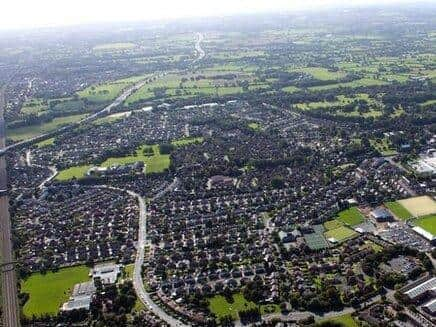Should Leyland and Bamber Bridge get their own councils?
and live on Freeview channel 276
That was the call from the Liberal Democrat group leader on South Ribble Borough Council, as the authority accepted “in principle” that reorganisation of local government would form part of ongoing discussions to secure a devolution deal from ministers.
The government said last week that the creation of so-called “unitary councils” – replacing the current split in responsibility in two-tier areas like Lancashire between borough authorities and the county council – would form the basis of any devolution agreement.


Advertisement
Hide AdAdvertisement
Hide AdThat would result in the creation of up to three new standalone councils covering large swathes of Lancashire – along with a separate combined authority and directly elected mayor.
Cllr Howarth said that the scenario would mean parish and town councils – which would be unaffected by the changes – would have a far more prominent role to play.
However, the areas within and around Leyland and Bamber Bridge are not currently served by these lower-level authorities, of which there are a total of eight in South Ribble – each with the ability to raise funds via a ‘precept’ on council tax bills in their own communities.
“During [almost 40 years as councillor], I have witnessed the gradual erosion of local democracy,” Cllr Howarth told a meeting of the full council.
Advertisement
Hide AdAdvertisement
Hide Ad“We used to have a ‘Lancashire Local’, where members of the public could pose questions to the county council – and that went. We used to have area committees in this council, where members of the public could ask questions [of us] – and they went.
“An elected mayor is yet another unaccountable oligarch, remote from local communities. Moves towards slimming down local government and getting rid of local representatives, along with thousands of local government staff, in a cost-cutting measure…do not serve the interests of our local communities.”
Cllr Howarth’s demand to ensure parish councils covered the entire borough before any reorganisation is implemented was accepted by the ruling Labour group, which had made it a manifesto commitment at last year’s local elections. Together with the Lib Dems, they also committed in principle to the creation of a combined authority and elected mayor – subject to all proposals, including those for reorganisation, being brought back to the authority for consideration once they are formulated.
The council recently announced a year-long trial of five “hubs” across the borough designed to increase the involvement of residents in the decision-making process. They are likely to work closely with existing parish councils.
Advertisement
Hide AdAdvertisement
Hide AdCouncil leader Paul Foster said he wanted to see district councils remain, because “they are closest to and represent our communities best”.
“There are discussions ongoing that we are not involved in regarding the reorganisation of local authorities in Lancashire – [so] we need to be prepared to act quickly.
“If the government makes it clear that there will be reorganisation whether we like it or not, then we need to have grown-up discussions with other boroughs to see what would be best for our residents. It’s not what’s best for the Conservatives, Liberal Democrat or Labour parties, it’s what’s best for local communities,” Cllr Foster said.
Conservative opposition group leader Margaret Smith said that she could not support making even in-principle commitments to any changes before publication of a government white paper on devolution in September.
Advertisement
Hide AdAdvertisement
Hide Ad“There is a lot of noise and hot air – and we have been here before. At the moment, I don’t think it’s very clear what the government have put on the table,” she said.
WHAT POWERS DO PARISH AND TOWN COUNCILS HAVE?
They may be the lowest tier of local government, but parish and town councils can generate income by adding a so-called “precept” to council tax bills in their area. Unlike larger authorities, the annual increase in the amount they can raise from local taxpayers is not capped by the government.
Their purpose is to fund improvements in their communities, such as more pleasant open spaces and upgrades to local facilities.
Parish and town councils are also statutory consultees in planning applications, which are determined by the authorities that sit above them.
Comment Guidelines
National World encourages reader discussion on our stories. User feedback, insights and back-and-forth exchanges add a rich layer of context to reporting. Please review our Community Guidelines before commenting.